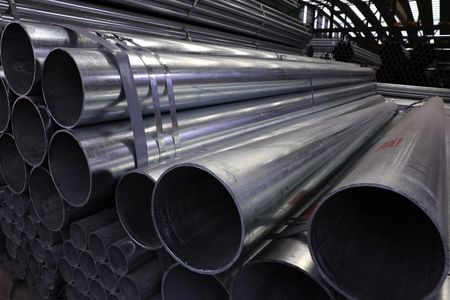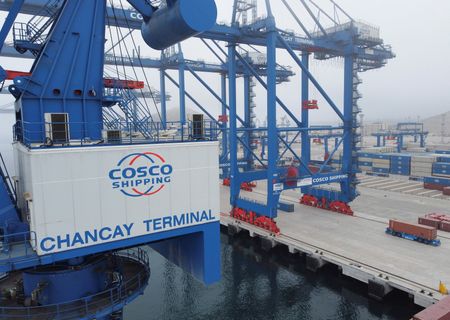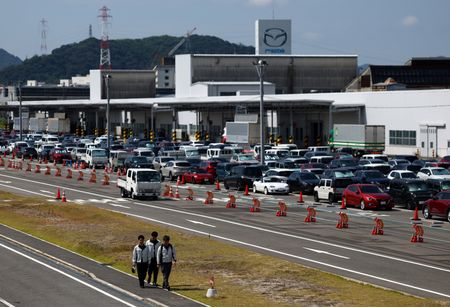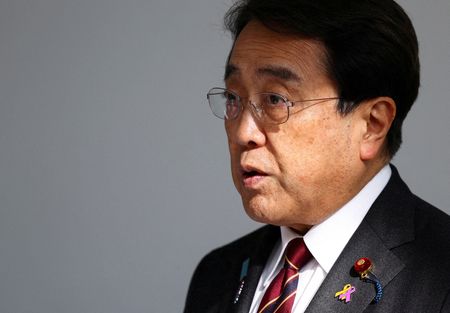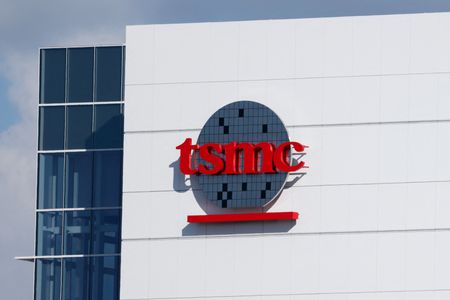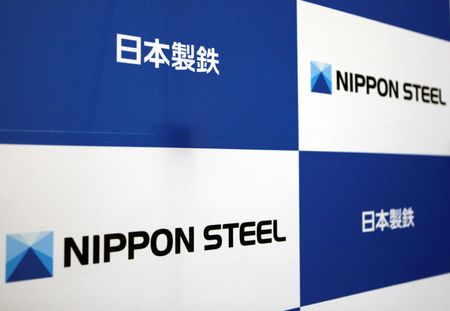(Reuters) -Chinese steelmakers are bypassing tariffs in countries such as Indonesia and Turkey by exporting semi-finished products, a tactic that undermines barriers against a flood of cheap Chinese metal and is raising concern in Beijing over the surge in lower-value exports, industry sources said.
Record steel exports from the world’s largest producer have sparked a protectionist backlash globally with 38 anti-dumping investigations from various countries since January last year. Top trade partners Vietnam and South Korea have imposed tariffs, arguing domestic manufacturers are hurt by cheap Chinese steel.
In response, Chinese exporters are turning to steel billet, semi-finished blocks of steel, that typically faces fewer tariffs. Exports between January and May were three times greater than the year before at a record 4.72 million metric tons, or nearly 10% of all steel exports over the same period, customs data showed.
Chinese exporters need to find any opportunity they can to sell products that are hemmed in on all sides by tariffs and weak demand at home, said Tomas Gutierrez, head of data at consultancy Kallanish Commodities, who added the trend started last autumn.
“Whenever billet exports are profitable, they will be exported,” Gutierrez said.
The top five export destinations for steel billet are Indonesia, the Philippines, Saudi Arabia, Italy and Turkey, according to customs data. Indonesia, Turkey and Saudi Arabia have tariffs on some finished steel products, but none on steel billets.
Other top export destinations for finished steel, including South Korea or Vietnam, similarly don’t have tariffs on billet, which is processed into finished products then used in construction and manufacturing.
That relative lack of trade barriers for steel billet versus finished steel has helped fuel the rapid growth in exports, analysts at Mysteel said in a note last week.
Part of that demand comes from trans-shipment, they added, with countries in Southeast Asia importing Chinese billet, processing it and then re-exporting it to Europe and the U.S.
President Donald Trump’s 50% tariffs on steel imports have disrupted parts of the trans-shipment trade by making it far less lucrative for countries to ship to the United States.
Underpinning the push for exports, whether billet or finished steel, is a weak Chinese economy and a battered property sector unable to absorb the huge amount of steel produced by a sector that has been toying with output cuts for months.
POTENTIAL EXPORT TAX
The surge in billet exports has sparked warnings from China’s state-backed industry body, which wants steelmakers instead to focus on higher-value added products.
The China Iron and Steel Association (CISA) advised the government to limit billet exports so the industry would stay focused on exporting higher value steel products, according to a statement reported in local media last month.
Beijing is considering imposing an export tax on steel billet, a source with knowledge of the matter told Reuters on condition of anonymity as the discussions are private.
Details about whether and how much tax may be imposed have not been finalised, the source added.
China’s Ministry of Commerce and the CISA did not respond to Reuters requests for comment.
Added value for steel billet is 400 yuan ($56) to 500 yuan lower than for finished steel products, according to consultancies Mysteel and Fubao.
($1 = 7.1729 Chinese yuan)
(Reporting by Reuters Staff; Editing by Lewis Jackson and Raju Gopalakrishnan)

